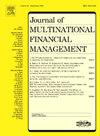Why do companies reincorporate abroad? Evidence from Europe
IF 4
3区 经济学
Q2 BUSINESS, FINANCE
Journal of Multinational Financial Management
Pub Date : 2024-12-19
DOI:10.1016/j.mulfin.2024.100895
引用次数: 0
Abstract
We take advantage of the institutional, fiscal, and regulatory differences across European countries to investigate why firms decide to reincorporate. Reincorporations within Europe have become increasingly common over the last decade, with Italy experiencing the largest outflow of firms and the Netherlands being the preferred destination. We investigate the expansion, tax saving, and regulatory arbitrage explanations. The evidence does not support the expansion and tax saving motivations as we observe no significant changes in firms’ investments and effective tax rates. On the other hand, we find that firms reincorporate in countries with a permissive legislative approach towards the adoption of control-enhancing mechanisms, as predicted by the regulatory arbitrage explanation. This is especially the case of Italian firms reincorporating in the Netherlands as they implement a degree of separation between ownership and control that goes beyond what their country of origin would allow. We discuss the governance implications of such decision.
为什么公司要在国外重新注册?来自欧洲的证据
我们利用欧洲各国在制度、财政和监管方面的差异来调查企业决定重组的原因。在过去的十年里,欧洲内部的重组变得越来越普遍,意大利经历了最大的公司外流,荷兰是首选的目的地。我们研究了扩张、税收节约和监管套利的解释。证据不支持扩张和税收节约的动机,因为我们观察到公司的投资和有效税率没有显著变化。另一方面,我们发现,正如监管套利解释所预测的那样,公司在对采用控制增强机制采取宽松立法的国家重组。在荷兰重新注册的意大利公司尤其如此,因为他们在所有权和控制权之间实施了一定程度的分离,这超出了他们的原籍国所允许的范围。我们将讨论此类决策的治理含义。
本文章由计算机程序翻译,如有差异,请以英文原文为准。
求助全文
约1分钟内获得全文
求助全文
来源期刊

Journal of Multinational Financial Management
BUSINESS, FINANCE-
CiteScore
7.30
自引率
4.80%
发文量
25
审稿时长
30 days
期刊介绍:
International trade, financing and investments have grown at an extremely rapid pace in recent years, and the operations of corporations have become increasingly multinationalized. Corporate executives buying and selling goods and services, and making financing and investment decisions across national boundaries, have developed policies and procedures for managing cash flows denominated in foreign currencies. These policies and procedures, and the related managerial actions of executives, change as new relevant information becomes available. The purpose of the Journal of Multinational Financial Management is to publish rigorous, original articles dealing with the management of the multinational enterprise. Theoretical, conceptual, and empirical papers providing meaningful insights into the subject areas will be considered. The following topic areas, although not exhaustive, are representative of the coverage in this Journal. • Foreign exchange risk management • International capital budgeting • Forecasting exchange rates • Foreign direct investment • Hedging strategies • Cost of capital • Managing transaction exposure • Political risk assessment • International working capital management • International financial planning • International tax management • International diversification • Transfer pricing strategies • International liability management • International mergers.
 求助内容:
求助内容: 应助结果提醒方式:
应助结果提醒方式:


